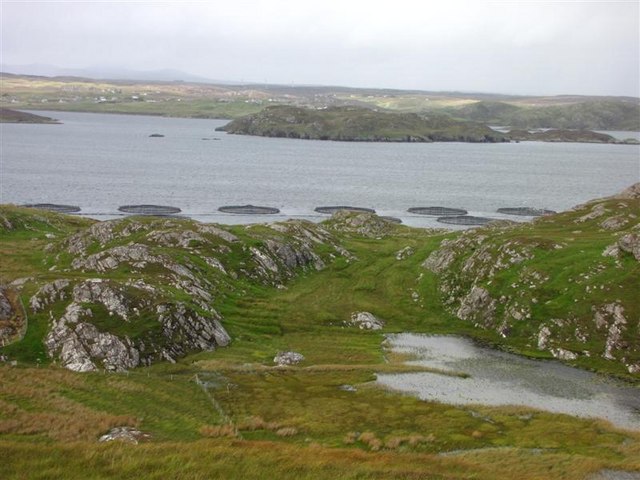
The country’s No. 1 food export is actually farmed Atlantic salmon.
Last year, almost $786 million worth of Scottish salmon was exported globally, with the United States as its largest market. The aquaculture industry, which already contributes $2.85 billion to the U.K. economy, has ambitious targets for growth. The Scottish Salmon Producers’ Organization, the main industry group, aims to more than double production to as much as 400,000 tons by 2030.
That growth, however, comes with high costs for Scotland’s environment.
That, at least, is the conclusion of a March government report, which echoes the concerns of environmental and community groups. The report, part of an ongoing inquiry by the Scottish Parliament’s Environment, Climate Change and Land Reform Committee, found that the country’s farmed salmon sector is reaching a critical point in which “the status quo is not an option.”
“If the current issues are not addressed,” the report says, plans for expansion “may cause irrecoverable damage to the environment.”
LINK (via: NPR)






We have a rather rude and and crude vernacular expression in my home country, Britain – “Not (even) with somebody else’s, mate!”.
Meaning, to use another old expression, dating from the days when canals were much used as a means of commercial transport in my country, “I wouldn’t touch that [something long dead and stinking in the water – a cow, say] with a barge pole.”.
I don’t know why, but remembering these old expressions brought something else, an image, to my certainly warped and deviant mind just now, that of certain sort of salmon.
Next day PS
These things tend to come through in waves, as that line in that old Pink Floyd ‘Comfortably Numb’ song says (“Your lips move, but I can’t hear what you’re saying”).
Seen some hours after I posted the above yesterday – about what’s going on in the heavily sold, world-famous Scottish Highlands:
https://www.theguardian.com/business/2018/oct/29/campaigners-call-for-temporary-ban-on-new-scottish-fish-farms
Salmon are worthy of rather better than being just cheap, mass-market microwave meal or lunchtime sandwich-filler material, to my mind – at least, the WILD ones are and the rivers and seas in which they swim. As for the poor little, brightly colo(u)red Wrasse rock-fish swimming in seas hundreds of miles south from the farms, now with a big-ticket price on their heads for use as ethical, non-chemical, sea lice-removers, leaving their native marine ranges depleted of their kind….
Play fast and loose with wildlife and the natural environment, and we see what the far from treehugging radical Worldwide Fund For Nature is “boringly” (for some) banging on about in the same British newspaper today.
https://www.theguardian.com/environment/2018/oct/30/humanity-wiped-out-animals-since-1970-major-report-finds
Heck, I can remember having an Indian mahseer of around 15 pounds neatly removed from the end of my line by a 10-foot freshawater Gharial crocodile in a crystal-clear Himalayan river right in front of my astonished eyes
I can remember Welsh rivers filling with salmon after every good post-rain flood or very high tide, and regularly catching a significant number of them (plus a LOT more sea-trout), too.
The year wasn’t 1900, either.
Coming to a river, a coast, a forest etc near you………..